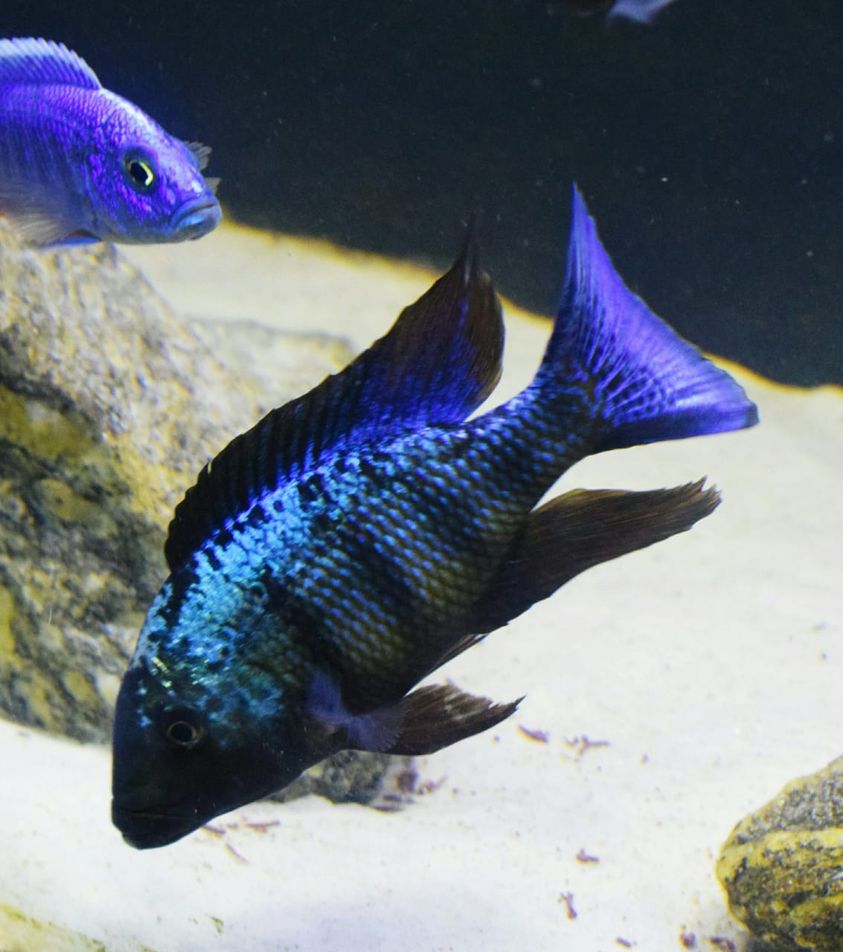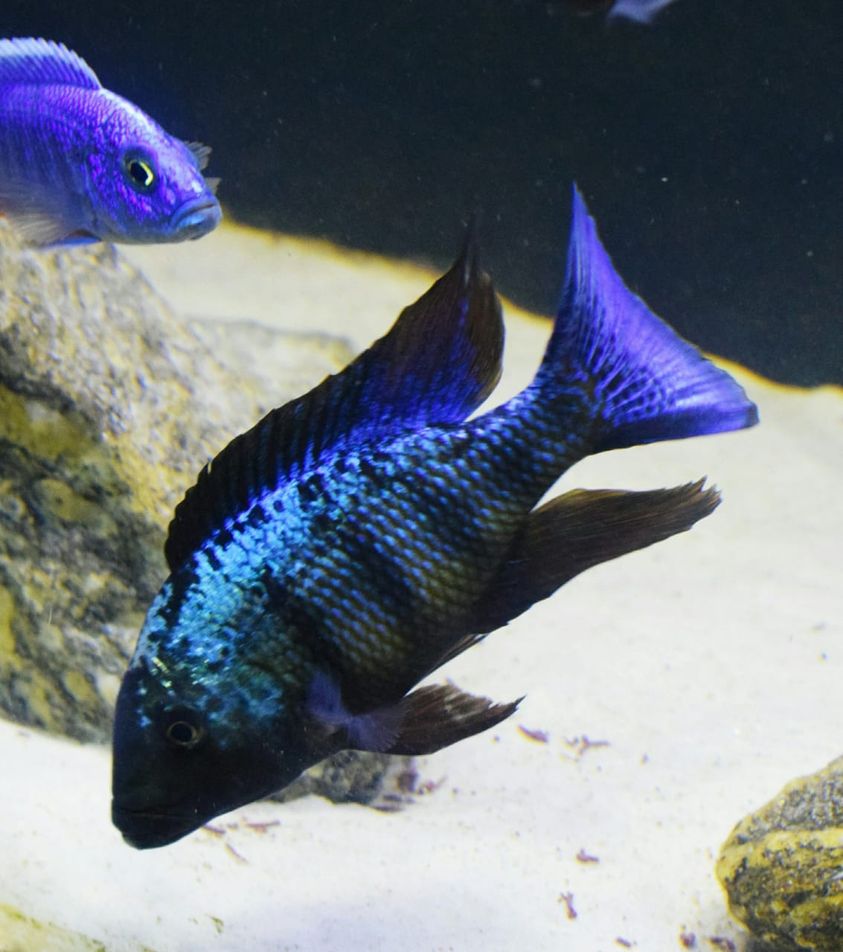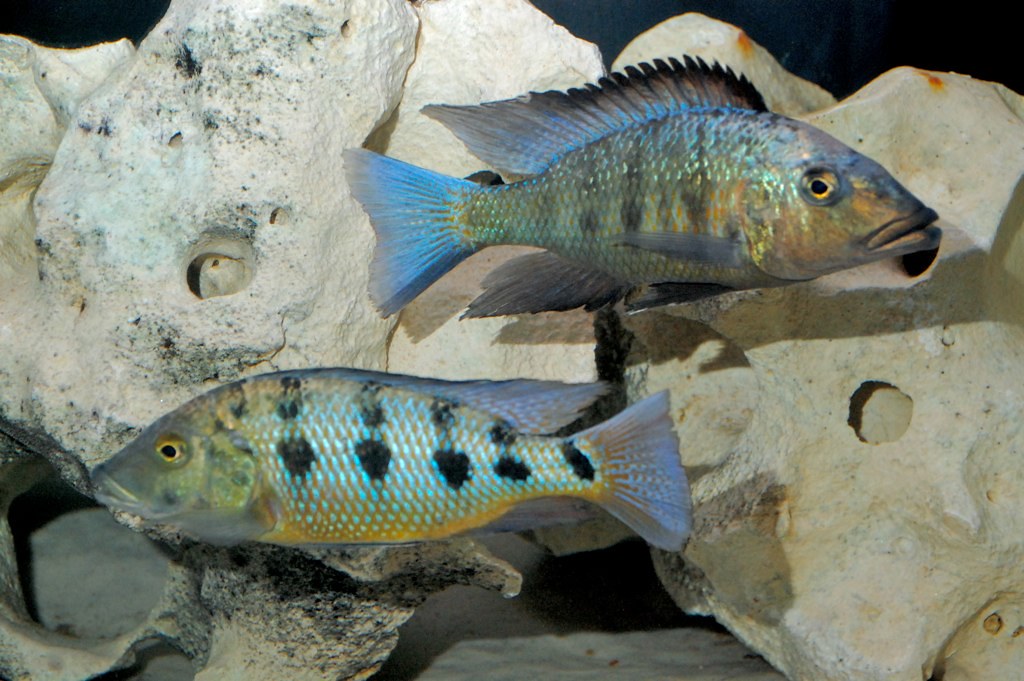
Fossorochromis rostratus (rostratus cichlid)
A native of Lake Malawi, Africa. It falls under the category of predatory haps. Like most haps, they are very unattractive in their juvenile stage but with age, they do turn out to be a sparkling delight! I have personally observed the growth and transformation of a juvenile rostratus to a fully transformed fish.They start with a white base and two sets of five black dots lengthwise which eventually merge into black vertical bars. The interesting characteristic is how they take a mouthful of sand/substrate and go to the top and spray them creating a tiny waterfall inside your tank.They love to dig and dive inside the substrate, so atleast a segment of the tank needs to have a thick layer of substrate. The males and females begin looking the same, but after they reach 5”, they start the transformation and the males grow to over 8” easily. They are very robust and needs to be housed with other haps which can accept the bullying.Their diet should consist of protein rich food with occasional meaty treats. Keeping a rostratus in a 4’ tank is a grave sin as they will initially settle down, but when they start transforming, they will wreck the whole tank. They lose their diving in sand characteristic when they get the dominant rank in the hierarchy as that is a defence mechanism when they are spooked.Owners remain clueless about the gender of their fish till they change colours. Males have great personality and are quite fearless. The transformation begins from the dorsal fin turning bluish followed by the upper part of the fish changing colour unlike most other peacock and haps where the face gets the first hint of colour change.Possible compatible tank mates include other big haps like Dimidiochromis strigatus, Protomelas taeniolatus, Aristochromis christyi, Nimbochromis venustus and other fishes which grow over 6”.They are not very common, but every Malawi enthusiast should atleast keep this species once in your life to see their amazing and unique behaviour.


